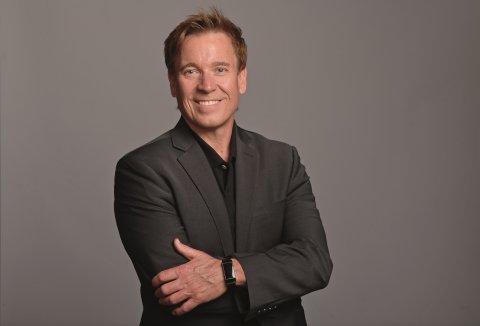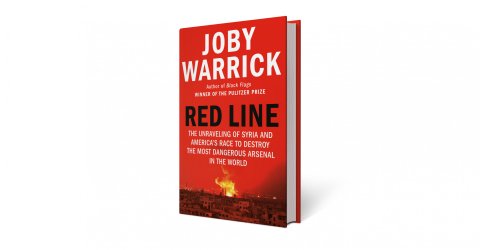In his new book, Red Line: The Unraveling of Syria and America's Race to Destroy the Most Dangerous Arsenal in the World, bestselling author and journalist Joby Warrick explores the conflict in Syria—from Bashar al-Assad's use of chemical weapons on his own people, to Obama's lack of military response and Trump's unsuccessful plans to take out Assad, as well as the discovery that ISIS was making chemical weapons of its own.
Newsweek talked with Warrick about, among other things, the successes in Syria, some of the most chilling revelations that came out of his interviews, and what Biden's challenges will be in the region. Edited excerpts:
Syria has witnessed nearly a decade of atrocities linked to this conflict. What prompted you to investigate this subject specifically?
I was drawn to exploring the one aspect of the Syrian crisis that compelled the United States and other powers to directly intervene. The poisoning of Syrian women and children with deadly sarin changed the nature of the conflict, and it also awakened the world to a grave threat—the possibility that Syria's nerve agents could be used more widely against Syrians or stolen by terrorists and let loose on a global stage.
The international response was flawed, and it failed to remove all of Syria's weapons. But it did accomplish something remarkable: Some 1,300 tons of the world's deadliest chemicals were extracted and destroyed, in the middle of a war. As a feat of disarmament, there has never been anything quite like it. How and why it happened is a hell of a story, and almost unknown.

You've seen and heard a lot of shocking things throughout your career. What was the most shocking revelation to emerge from interviews for this book?
The most chilling revelations came as I began to grasp how close we came to very different kind of disaster in Syria. In 2012, intelligence showed that Assad was preparing to deliver some of its chemical weapons to Hezbollah, the Lebanese militant group. At least twice, Islamist armies came within a whisker of overrunning military bases where these weapons were kept. It doesn't take much imagination to envision what could have happened if a few liters of sarin had ended up in the hands of ISIS.
That a U.S. president would shift foreign policy on the basis of a single team may surprise, even frustrate, some people. What did this incident teach you about the calculus of both the Obama administration and the Syrian authorities bracing for the attack?
A number of problems stymied the Obama administration's immediate impulse to launch missiles into Syria in 2013. One was the presence of about 20 U.N. weapons inspectors who were on the ground in Damascus as the strike plan was coming together. Obama's team worried that the inspectors would become collateral damage—that the Assad government would use them either as human shields, or as hostages after the bombs and missiles fell. As the White House worked to get the inspectors out, key supporters of a potential strike—including members of Congress and allies such Britain—began to back away from the plan. The momentum for a missile strike evaporated after that. Former President Trump did indeed strike Syria on two separate occasions in response to alleged chemical attacks.
Have the results of those strikes affected your opinion about what could have gone differently in 2013?
It is easier to compare the two approaches now, with hindsight. The strike plan contemplated by Obama in 2013 was quite similar to the one carried out by Trump in 2017, meaning both were intended to target only military installations, not weapons stockpiles or the Syrian regime itself. Trump's missile strike initially appeared decisive, but later it became clear that the attack barely dented Assad's military capability. The strike did not topple the regime or shorten the war. Nor did it stop chemical weapons attacks, which resumed a few months later. Obama's heavily criticized diplomatic approach didn't change Assad's behavior either, though it did, at least, result in the elimination of most of the dictator's chemical weapons stockpile as well as his production equipment.
The U.N. team involved in this book encountered Islamist militias that were ostensibly the target of the Syrian government's campaign. How did hearing of these interactions influence your perception of the conflict and its players?

The unarmed weapons inspectors on the ground in Syria are among the heroes of my book. They operated mostly in no man's land, figuratively and sometimes literally. The Syrian regime did not want them poking around sensitive military sites trying to account for missing weapons. Many of the rebels—and especially the Islamists—also distrusted them or saw them as tools of the Syrian state. They were shot at, mobbed, spied upon and threatened. But they bravely performed their mission.
Overall, how would you evaluate the U.S. experience in Syria?
There are good reasons why many U.S. officials describe the Syrian crisis as "the problem from hell." The options were terrible from the outset, and they grew steadily worse. Absent a major U.S. military intervention in Syria—an idea which was never going to fly in Washington—there was no sure way of overthrowing the Assad regime and replacing it with moderate rulers. Assad proved to be just as tenacious as he was ruthless, and he was backed by allies who protected him diplomatically, at the United Nations, and also with troops and planes. Syria's rebels were convinced that the United States would ultimately come to their rescue, but in reality Washington was never prepared to commit the kinds of resources needed to help their side prevail.
What do you feel are President Biden's greatest challenges in Syria today, seven years later?
The war is effectively over, but there's a strong consensus view that says the United States needs to remain engaged in Syria, including, presumably with a presence on the ground. The Pentagon has kept a small contingent of U.S. forces in Syria, as a check against Iran's ambitions and a guarantor against a resurgence of the Islamic State, which still commands tens of thousands of followers in the region. Leaving it to others to settle questions about Syria's future risks a return of widespread instability that could fuel extremism and put our key allies at risk.
What's next for you?
When Assad violated the chemical weapons taboo with near-impunity, others around the world took notice. Since 2014, the Islamic State has experimented with chemical weapons, and both North Korea and Russian have used nerve agents to kill political opponents—while also spreading disinformation to deflect blame. I worry that we're entering a time where anti-democracy forces will see value in developing new kinds of chemical weapons, and—noting the disruptive impact of COVID-19—perhaps biological weapons. I see an urgent need for investigative work in all these areas.









